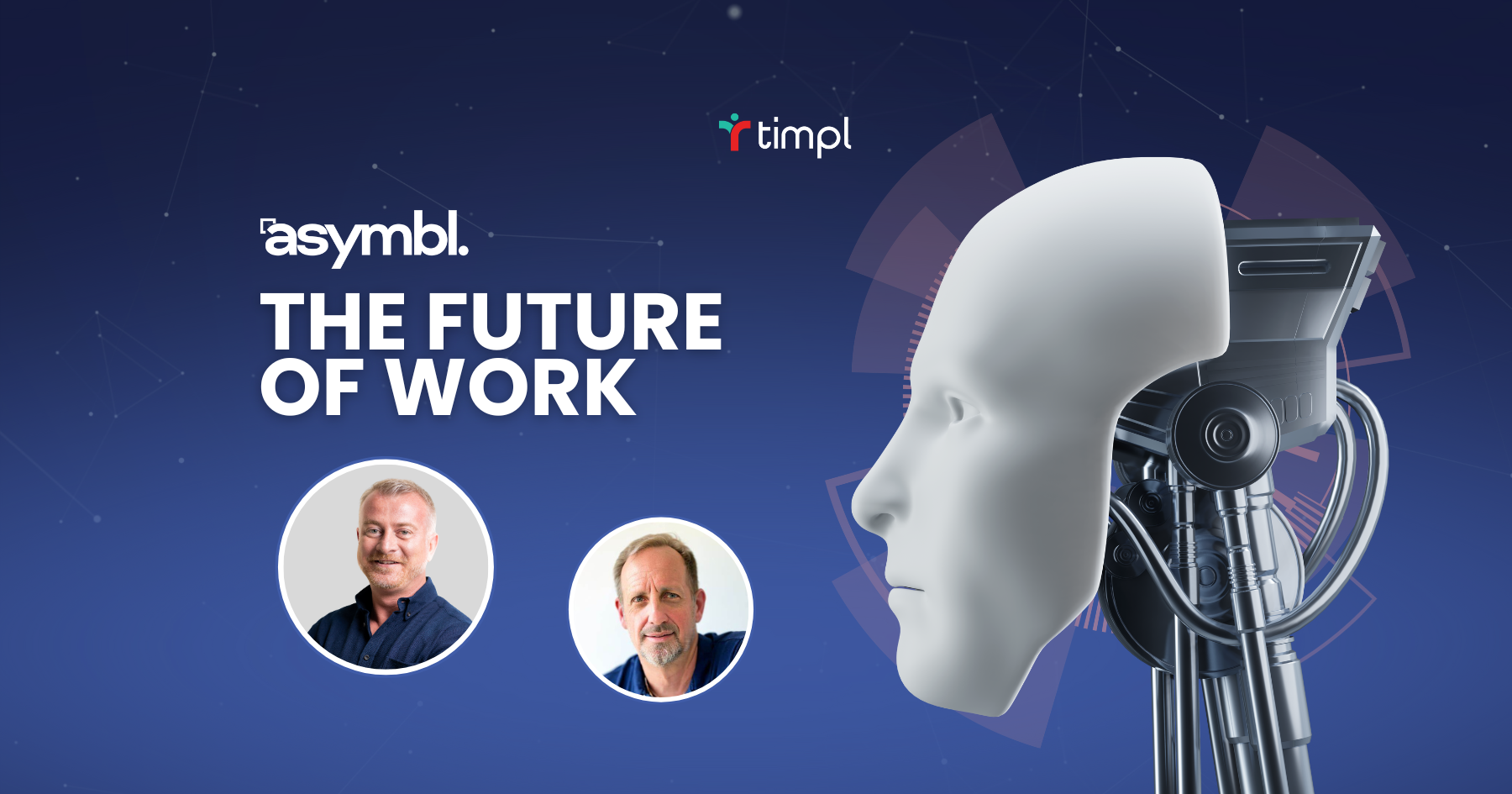Asymbl the Future of Work: Brandon Metcalf on AI, Agents and Staffing Innovation

Post Categories
2025-01-21
Tony Moore
AI has infiltrated every aspect of digital work and life, but AI Agents offer the most promise of automation replacing manual digital labor.
Brandon Metcalf from Asymbl joins the jobTopia podcast to discuss the current reality of AI Agents.
SHOW NOTES
- Talent Rover: An HR tech company initially founded, which was later acquired by Bullhorn. The founders have since started new ventures due to their entrepreneurial drive.
- New Ventures: After selling Talent Rover, I was involved in other projects, including founding Blueprint Advisory, a Salesforce consulting firm. This led to further engagement in staffing solutions through Salesforce partnerships.
- Salesforce Ecosystem: The conversation delves into how Salesforce has evolved, emphasizing its role not just as a CRM but as a comprehensive business operating system. This evolution includes various tools like Chatter, Salesforce 1, Lightning, and AI enhancements like Einstein, leading to the concept of a "digital workforce."
- AI Agents: A significant portion of the discussion is on AI agents, which are not merely chatbots but intelligent entities capable of performing tasks autonomously based on data and AI logic. This includes examples like writing emails tailored to specific interactions or managing data across platforms like Slack for better workflow.
- Tech Stack for Staffing: For staffing firms interested in adopting this technology, the advice is to start with understanding the problem to solve, ensuring data integrity, and leveraging platforms like Salesforce for their agent capabilities without needing extensive coding knowledge.
- Future Implications: The dialogue touches on how AI integration will fundamentally change how businesses operate, emphasizing the blend of human and digital labor for competitive advantage. The importance of data normalization and security is highlighted to prevent misuse or leakage.
- Closing Thoughts: The conversation ends with an invitation to explore more on AI agents in future episodes, acknowledging the transformative potential of this technology in staffing and recruitment while addressing human concerns about interaction with AI.
AI Agents in HR Technology:
- From Chatbots to Agents: AI agents represent an evolution from basic chatbots, which were primarily used for simple, scripted interactions. Agents are designed with greater autonomy, intelligence, and the ability to perform tasks independently or in collaboration with humans.
- Role of AI Agents: These agents leverage AI to not only respond to queries but also to execute tasks, make decisions, and learn from interactions. They use technologies like natural language processing (NLP), machine learning (ML), and large language models to understand context, interpret data, and act accordingly.
Key Attributes:
- Autonomy: Unlike traditional AI systems that require human oversight for each action, agents can operate autonomously. They can be programmed or learn to manage workflows, from scheduling to data analysis.
- Task Execution: Agents can perform a variety of tasks such as writing emails, managing candidate databases, scheduling interviews, or even providing personalized job recommendations based on past interactions and data.
- Learning and Adaptation: They learn from the data they process and the outcomes of their actions, improving their decision-making and task execution over time. This continuous learning makes them effective in dynamic environments like recruitment, where human behavior and job requirements are variable.
- Integration with Systems: AI agents are designed to integrate seamlessly with existing systems. In Salesforce, for instance, they can work within the platform or extend functionalities via APIs, interacting with both structured data (like CRM entries) and unstructured data (like emails or Slack messages).
Applications in Staffing and HR:
- Candidate Engagement: Agents can handle initial candidate interactions, screen applicants, and even conduct preliminary interviews through text or voice communication, enhancing engagement and speeding up the hiring process.
- Data Management: They can manage and update databases, ensuring data integrity by cross-referencing information from various sources, updating candidate profiles, or tracking job statuses.
- Predictive Analytics: Using historical data, agents can predict candidate fit, retention likelihood, or potential job satisfaction, helping recruiters make informed decisions.
- Workflow Automation: From automating follow-ups to managing interview schedules and feedback loops, agents can significantly reduce manual labor, allowing human recruiters to focus on strategic tasks like relationship building.
Challenges and Considerations:
- Data Privacy and Security: As agents deal with sensitive personal data, ensuring compliance with data protection laws like GDPR or CCPA is crucial. There's also the challenge of safeguarding this data against misuse or breaches.
- Human-AI Interaction: There's potential resistance from both candidates and recruiters due to the impersonal nature of AI. Trust and transparency in how AI decisions are made need to be established.
- Bias and Fairness: AI systems can perpetuate existing biases if not carefully designed. Algorithms must be continuously audited for fairness in candidate selection or job matching.
- Skill and Knowledge Transfer: Training AI agents to understand the nuanced requirements of different jobs or the subtleties of human interaction in recruitment is an ongoing challenge.
Future Trends:
- Conversational UI: Moving beyond traditional interfaces, the future involves more conversational interactions, making the technology more intuitive and less cumbersome for users.
- Multi-Agent Systems: Companies might employ multiple specialized agents that work together, each with specific roles, enhancing the complexity and capability of business operations.
- Ethical AI: There will be an increasing focus on developing AI agents that adhere to ethical standards, promoting inclusivity and fairness in recruitment practices.
- Integration with Emerging Tech: As technologies like blockchain for secure data handling or VR for virtual interviews evolve, AI agents will integrate with these to provide more comprehensive solutions.